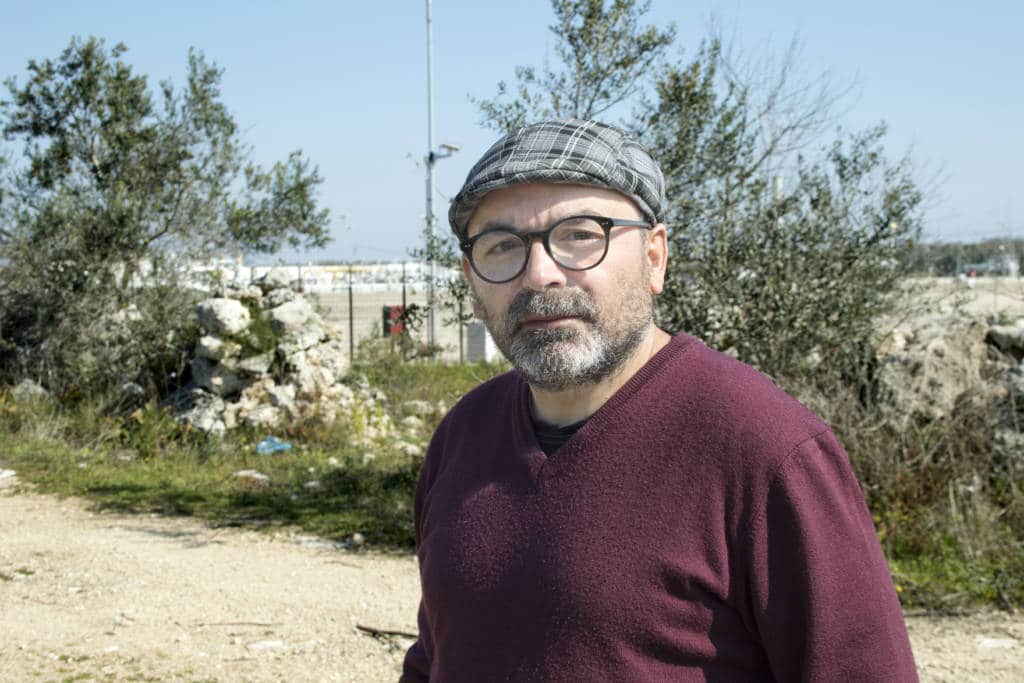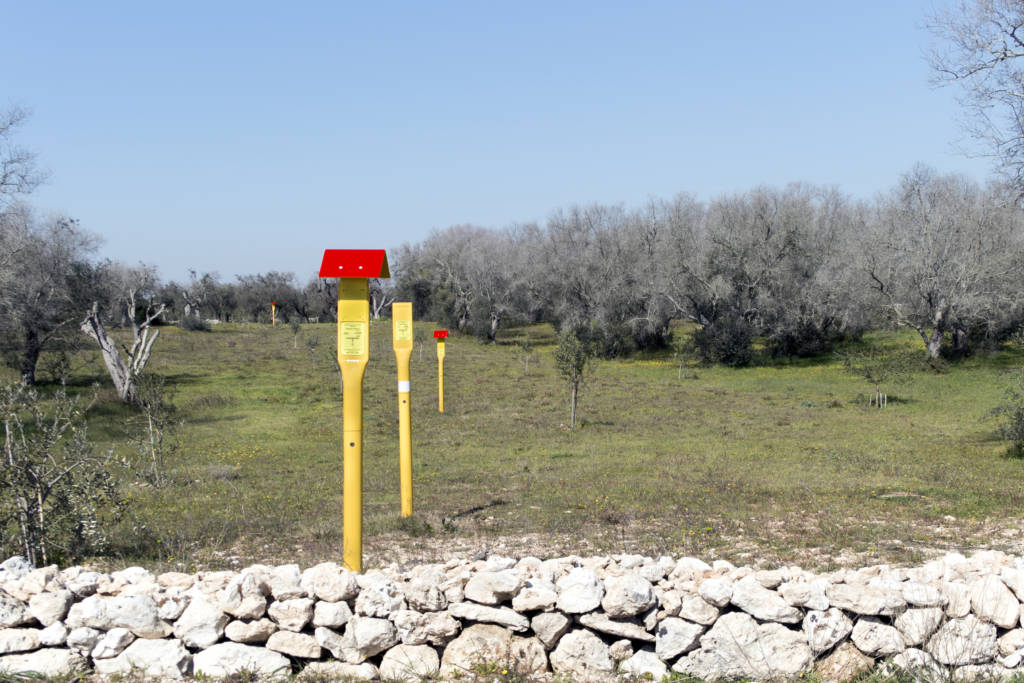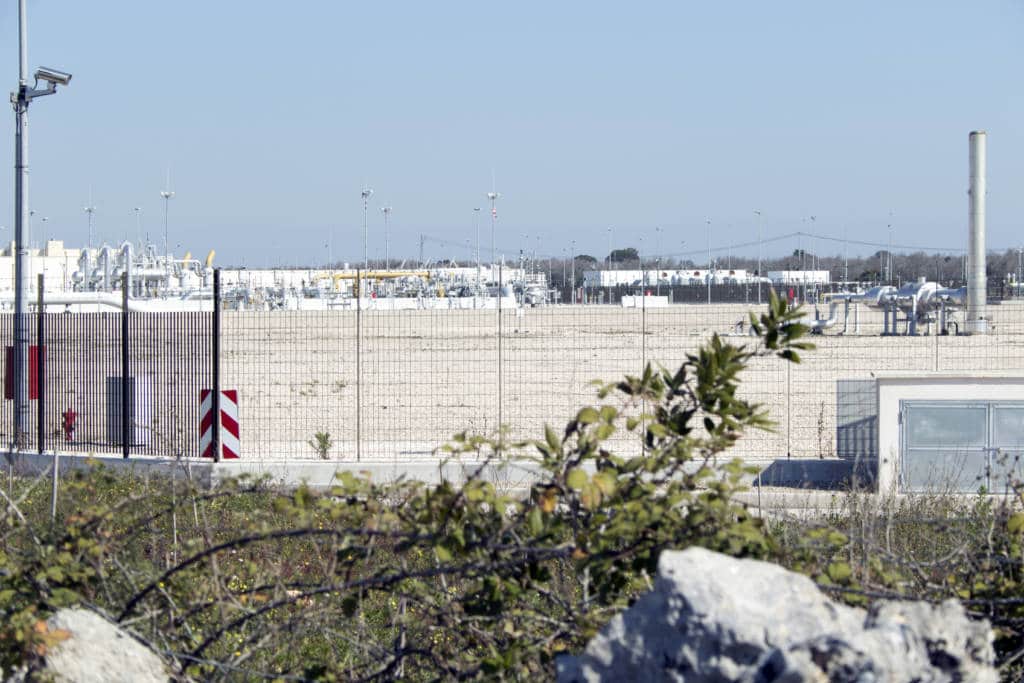“We weren’t against this project by any means, we wanted to understand what it was about. And the first thing we realized was that a pipeline is not just a pipe. It is the result of a huge amount of international agreements, speculation, funding with public money. And a significant environmental impact.” ~ GianLuca Maggiore
Gianluca Maggiore is the spokesperson of the NoTap Movement, which in March 2022, celebrated five years of mobilization against the Trans Adriatic Pipeline (TAP). The TAP is the European section of the Southern Gas Corridor, a 3500-kilometers pipeline opened in 2018 to bring fossil gas from Azerbaijan to southern Italy. “It all started around mid-2011, Maggiore remembers, speaking with the expertise of someone who has dedicated the last ten years of his life to this fight. At that time, the first documents available mentioned the landing of a gas pipeline on the beach of San Foca, half an hour drive from Puglia’s regional capital, Lecce.
“For us, the beach of San Foca is as beautiful as the Albanian beach from which the TAP starts. We were not against the TAP because it was coming here, but because we considered it, after careful study, useless and harmful. We began to study, to oppose and – especially in that historical period – to inform. We translated thousands of pages of project plans into a language the population could understand”, Maggiore says. The first core group of the NoTAP Committee began a legal battle to combat the construction of the pipeline. “The fight was carried on until 2017 by about thirty people, who informed the population about what was happening”.

Gianlucca Maggiore, NoTAP spokesperson. Photo credit: Valentina D’Amico
The turning point
Everything changed on the 16th of March 2017. Construction of the TAP, which was blocked for years by legal opposition, was suddenly initiated by an executive decision of the Ministry of the Environment. Even if, as Maggiore remembers, “the environmental impact assessment had proved not to be exhaustive.” This was the turning point that transformed the Committee into a popular movement. “The NoTAP Committee simply wrote a message on Facebook saying: “we can’t stop them anymore, we have to take to the streets,” the spokesperson recalls. “We became a movement, beginning a battle on the ground. We were there at five o’clock in the morning, in the rain, to prevent the Tap vehicles from reaching the construction site. It was, and it is a tough battle”.
“Now we are celebrating five years of this movement, but the reaction to the project of this pipeline had been there long before”.
Elena Gerebizza is the Energy and infrastructure campaigner of Recommon, an Italian association that started covering and supporting anti-TAP demonstrations in 2013. “It was much smaller, there were fewer people, and it couldn’t be considered a popular movement, which instead became since the Italian state chose to send hundreds of policemen to repress the protests.” Gerebizza says that “the level of state violence was so impressive that it mobilized the entire population. Thousands of people went to the TAP site in those days, trying to block the construction. There were high school students, families with young children, and the elderly from all over the province. And gradually, people began to come in from outside to help.”
The consequences of this violence are manifested by the high number of lawsuits against activists, some of which are still ongoing. “The charges range from unannounced demonstration to insulting a public official, from private violence to violation of the residence ban,” explains Elena Papadia, one of the lawyers defending the activists. “And there was repression, which started from the beginning, hitting the activists with financial fines, for having slowed down the traffic of trucks coming to the construction site,” Papadia continues. “The activists had to pay very high fines and, in most cases, they are ordinary citizens who sometimes have financial difficulties. The Movement paid for all out-of-pocket expenses, thanks to a so-called “resistance fund.” In 2017, NoTAP’s spokesperson Gianluca Maggiore remembers, activists were fined 217,000 €.

Posts marking the route of the gas pipeline. Photo credit: Valentina D’Amico
Despite the Movement’s opposition, the work went ahead, and on 30th December 2020, the first 3 million cubic meters of gas was sent from Azerbaijan to Italy through the TAP. “But we don’t feel defeated, despite everything that happens to us,” Maggiore clarifies. For him, the Movement’s battle is still relevant “as long as there will be one person who has suffered repression for their opposition to TAP. The Movement will exist, first of all, to help that person with our resistance fund.” And he adds, “we need to maintain the memory of this battle and the knowledge that this has generated. We are aware that this fight, in southern Italy at least, is symbolic; it aims to change the system. And it was such an informative battle that the information donated to the citizens by the Movement for free cannot be erased.”
The Movement – Papadia confirms, “has developed an awareness that goes beyond the activity of Tap. Even citizens who did not previously have political knowledge became aware of global dynamics. This is a great victory for the Movement because – despite the judicial offensive – those involved developed a very strong political consciousness, no longer linked to the local territory but a global perspective. And no one can take this away because when a political conscience matures, even judicial repression is faced head-on. They have the pride of knowing that they acted for an interest that is not private, but public and collective.”
Elena Gerebizza of the association Recommon, thinks the same way: the results after five years of protests are positive, “despite the fact that the pipeline was eventually built.” They are positive, she explains, “because such a strong response has highlighted all the contradictions behind the way the EU Commission promotes this type of energy project, as well as the interests the Italian government defends. Are those the interests of the territory, of the population?” she asks rhetorically. “It has become clear that the interests that these projects serve are private, and they have nothing to do with the community’s well-being.”

TAP gas terminal. Photo credit: Valentina D’Amico
More than just a NIMBY fight
The Movement, thus, seems to survive the end of the contingent conditions that originated its birth. This has to do with the strength of its slogan, which, as Gerebizza points out, was “No TAP here or elsewhere.” “This became a slogan that was also taken up internationally by other groups, who understood the transformative value of saying: “it’s not that we don’t want the pipeline at home, we just don’t want it because it’s a harmful, imposed project that doesn’t serve us or the other European citizens.” This motto, the Energy campaigner of Recommon continues, “opened up a much broader reflection that involved all the surrounding territories. This is why NoTAP has become a mass grassroots movement. Little by little, people recognized that the pipeline’s impact would be wider than what was being predicted by the proponents. This was an enormous strength, while the institutional counter-narrative insisted only on the territorial aspect, saying that it was just a NIMBY [Not In My Backyard] fight. But it wasn’t”. Papadia shares the same view: “Neither here nor anywhere else,” this is precisely the current battleground. This slogan underlines how the NoTAP struggle is not NIMBY, but linked to global dynamics. It is not a lost battle – even now that the TAP is completed – since it brings to light systemic problems.”
Those systemic problems are related to the globe’s dependence on fossil fuels. And the NoTAP message is, in light of the current energy crisis caused by the Russian invasion of Ukraine, even more relevant. Enzo di Salvatore, professor of Constitutional Law at the University of Teramo and founder of the Italian movement that fights gas exploration drilling, emphasizes, “it is an even more uncomfortable and more difficult battle, but it is no less right. The cause of the energy crisis does not lie in saying no to fossils. Fossil fuels, in addition to all the damage they have created, have not even been able to prevent this emergency.”
“Now – Gianluca Maggiore concludes – all that needs to be done is going in a different direction from what TAP represents: a useless, climate-altering project that brings fossil fuels. The Movement’s commitment is precisely to promote a system in which energy production is distributed and democratic.”
